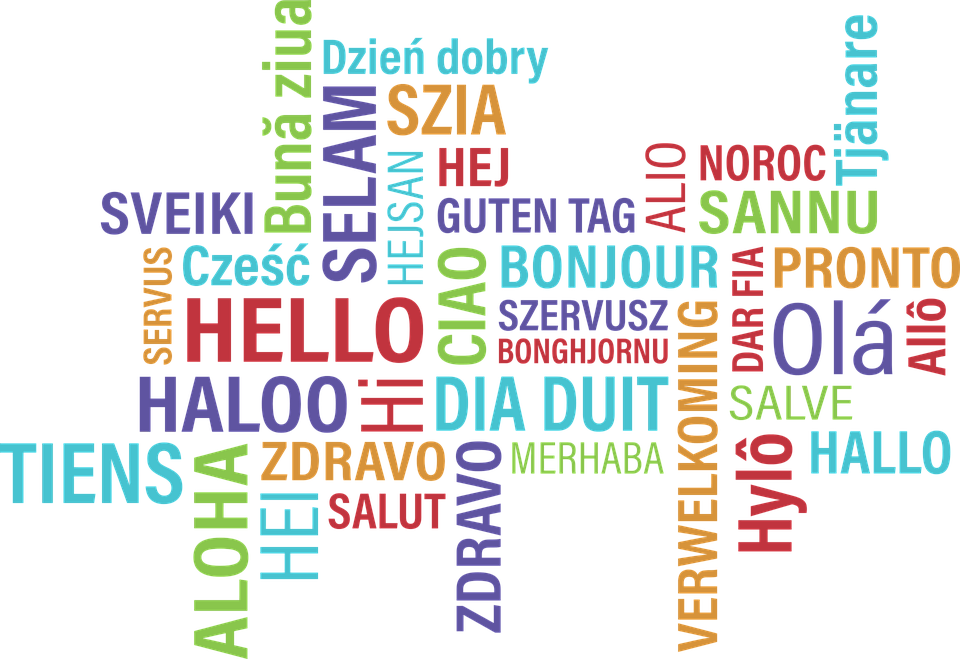Know the Benefits of Learning a Foreign Language

Jump to Section
As a Game of Thrones fan, the one character I find underrated is Missandei. A trusted advisor of Daenerys Targaryen, she is fluent in 19 languages. Her multi-linguistic skills have come in handy multiple times during several negotiations. I am sure at some point, all of us have wanted to be her. Sure, we may not be able to learn Dothraki or Valyrian, but we can learn other foreign languages.

Austrian philosopher Ludwig Wittgenstein once said, “The limits of your language are the limits of your world”.
In the eighth grade, I had a chance to learn French, and I did not give it up. I spent the next five years learning one of the most popular languages in the world. And once I was satisfied with my knowledge of French, I moved on to German.
Love learning languages but don’t know what career you want? Take Mentoria’s holistic psychometric career assessment test to discover your ideal career based on your unique interests, skills and personality!
1. Strengthens Metalinguistic Awareness and Improves Communication Skills
I speak from personal experience when I say, once you learn a foreign language, it’s much easier to learn another. There’s a concept known as metalinguistic awareness, which refers to the ability to objectify language and dissect it as an arbitrary linguistic code independent of meaning. To put it simply, your brain finds it simpler to replicate the process of learning a new language after doing it once. As and when you extend your list of spoken languages, your brain muscles get habituated to the process. It also improves your first language skills. A new concept in a new language will help you relate it to your mother-tongue. This boosts your communication skills in both languages; so you’re effectively killing two birds with one stone.
2. Improves Global Employability and Inculcates Soft Skills
If your resume boasts of a foreign language, you are portraying yourself as a global employee. You can prove that you are capable of working with employees of different ethnicities and cultural backgrounds. It opens the door to learning new cultures and ways of life. The understanding of different cultural beliefs enables you to view a situation from various perspectives and take the right decision at the workplace. When you know a foreign language, your brain starts thinking on a broader level enabling you to understand from the other person’s point of view, improving interpersonal skills at work. It also testifies to self-discipline, shows you’re goal-oriented and independent, all of which are excellent buzzwords for your resume.
3. Boost the Potential for International Work and Promotions
Many people are passionate about working for an international company. As companies broaden their reach across continents and service a diverse population, global corporations are demanding candidates who will immerse themselves in other cultures. If you like to travel, you can boost your chance of getting selected for international travel based on your abilities to speak a foreign language. Also, your skills could increase the odds of a promotion.
According to language experts, a professional fluent in a second language can earn up to 15 percent more than their monolingual counterpart. Multilingual people are a tiny percentage of the workforce. Economically speaking, employees who can speak more than one language are in higher demand than those who cannot because there are fewer of them. Consequently, multilingual employees also come with a higher price tag.
4. Improves Creativity and Multitasking Ability
Researchers conclude that bilinguals and multilingual speakers are more creative and can easily multitask. This is because they can quickly switch between different structures. Employers that are aware of this will give you an edge over others.
Many jobs in education, healthcare, social work, national security, translation, tourism, and international business require or favour candidates who are bilingual, resulting in more job opportunities for those who can speak a second language. And speaking a foreign language can make it easier to be eligible for jobs, internships and work-study programs in other countries – especially if you have critical skills.
5. Brings the World Closer
If you feel like you’re in for some change and you’re looking for some excitement and adventure in your life, a foreign language might just be the door that’s waiting to be opened. Why not leave for a few years and study in East Asia? Or perhaps find your dream job in Germany? Whatever it is that you want, knowing a foreign language will suddenly shrink the world and bring you opportunities of a lifetime. Are you getting itchy feet yet?
A foreign diplomat collects and reports information that could affect national interests, often with advice about how the home-country government should respond. This way, they travel the world. How do you become a foreign diplomat? Learn a foreign language is definitely a recommended route.
Need help figuring out the right route for your ideal career? Speak to Mentoria’s expert career counsellors for personalized step-by-step guidance for your future career path.
6. Shows That You’re Willing to Try New Things
Even if your prospective employer does not speak a whiff of French or Spanish, stating in your application that you are able to communicate in a foreign language suggests that you are willing and interested in learning new things. It would translate to you being open to take on out-of-the-box challenges in the company.
7. Broadens Perspectives and Brings Opportunities
Steve Kaufmann is a well-known internet polyglot (one who knows or uses several languages) with over 100,000 subscribers to his YouTube channel. He speaks 16 languages and is currently working on his 17th. A former Canadian diplomat, he is the co-founder of LingQ, an online language learning system and Web 2.0 community, whose members from all over the world help each other learn up to 21 languages.
Kaufmann says, “one of the greatest benefits of learning a second language for your career is that it increases the number of opportunities that are going to come your way. It increases your opportunity to connect with people and understand them better. You never know which languages are going to come in handy and when.”One of history’s greatest polyglots is the Cardinal Giuseppe Mezzofanti. This Italian theologian didn’t just know his stuff when it came to religion, he also had in-depth knowledge of ethnology, archaeology, numismatics, and astronomy. Mezzofanti’s true passion was linguistics. He was known to definitively speak at least 39 different languages, ranging from Hebrew to Ancient Armenian, as well as dozens of other dialects (some believe he may have spoken almost a hundred languages and dialects). During his lifetime he served as a professor of Arabic at the University of Bologna and later became a professor of Oriental languages and Greek, all while learning languages, heading up missionary activities, and maintaining the Vatican Library. He was such a well-known linguistic genius that when he died, people all over Europe vied for his skull.
Everything has an opportunity cost. An hour spent learning French is an hour spent not learning something else. But it isn’t hard to prioritise.
Learning a language isn’t easy. We all know that. I know that I really struggled with it, but I understand why it’s important to be able to communicate to others. Though, I find that people are more impressed with knowing that I am trying to learn to speak languages rather than whatever else I am doing.
So get your learning cap on and get speaking a language that is foreign. No matter what language you try to learn, even taking the time to learn it is worthwhile.
Want to be set aside from your peers? Learn a foreign language!
Hungry for knowledge? Check out Mentoria’s Knowledge Gateway! Sign up to Mentoria and get lifetime access to the Knowledge Gateway!






